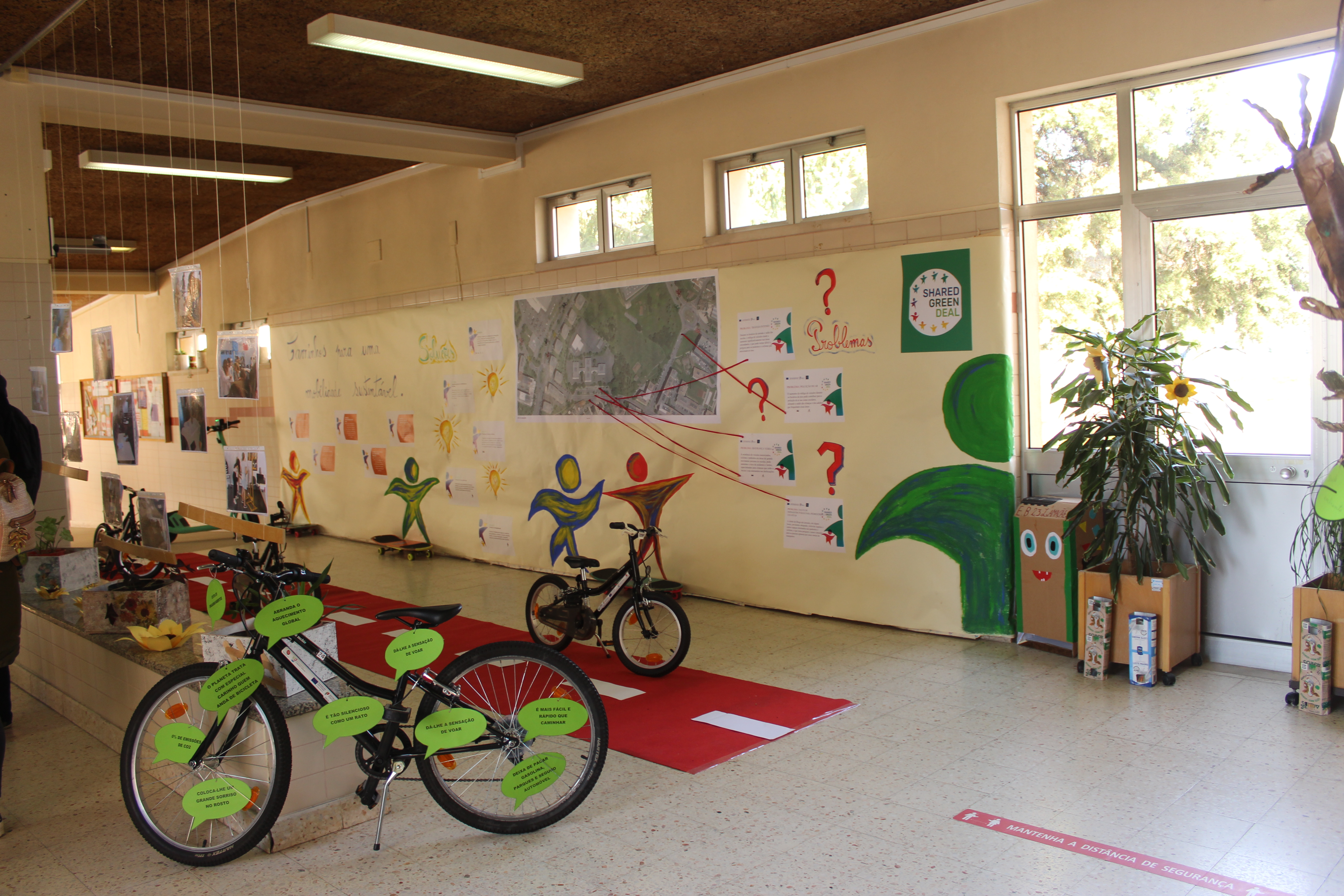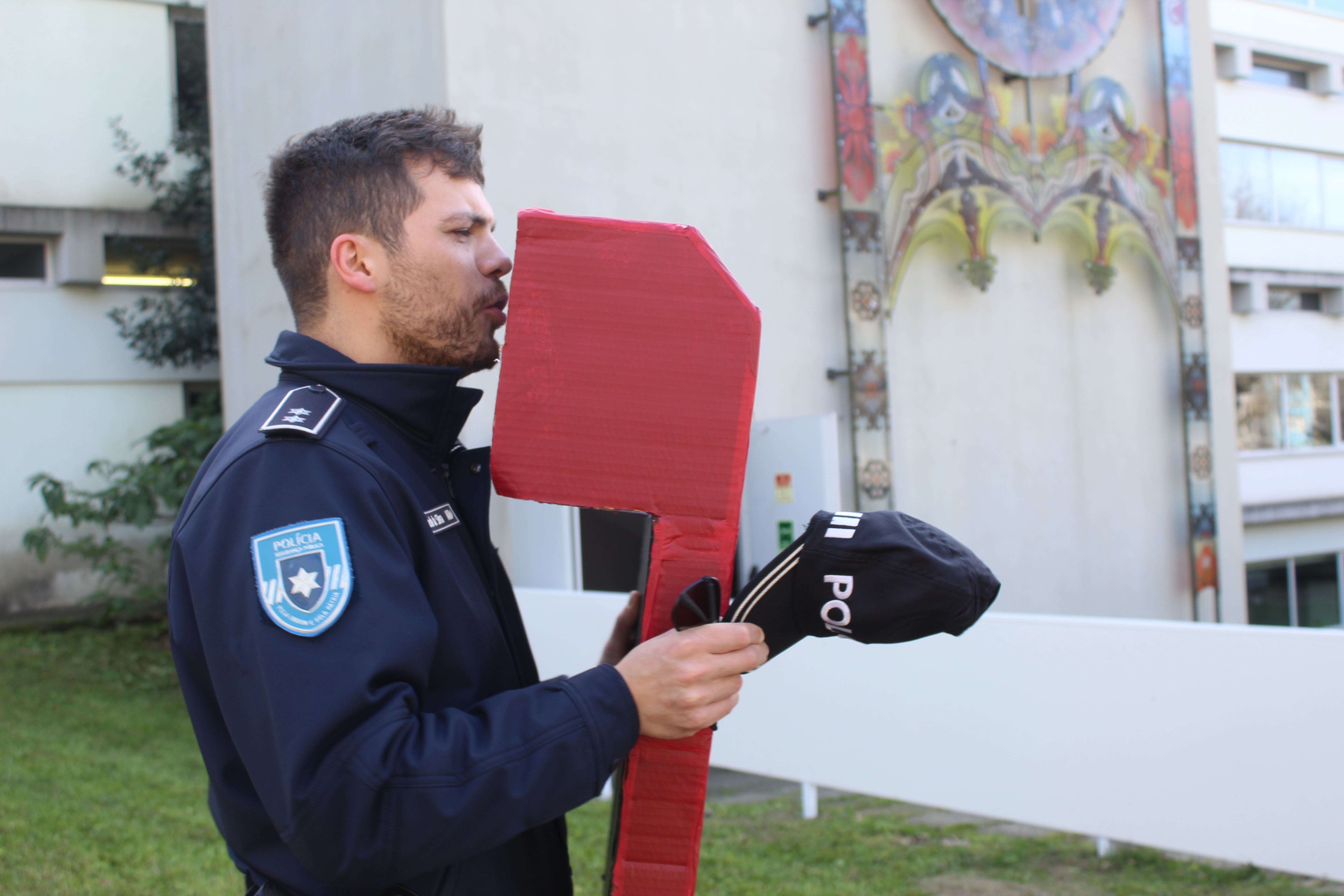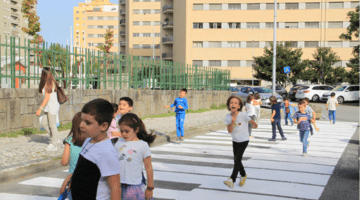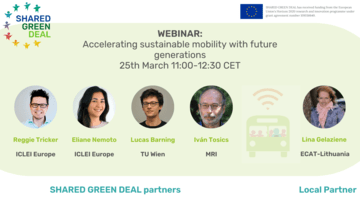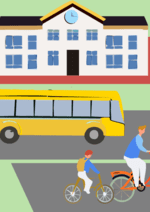Rethinking mobility through children’s eyes: co-creating streets in Braga

In Braga, Portugal, a city widely recognised for its commitment to sustainable transport and winner of the European Mobility Week Award in 2022, a new focus on working with young students is helping move the city’s mobility agenda forward while also aligning it with the needs of the next generation.
This commitment goes far beyond any single initiative, but it received an important boost in 2023 when the municipality joined SHARED GREEN DEAL as a local partner and launched Mobility Labs at three local schools.
The goal was not only to rethink daily commutes but also to encourage a broader cultural shift, where young people are empowered to raise their voices, shape policy, and model new ways of living in their city. The result is a growing network of mobility ambassadors, real-life changes happening quickly, and a stronger connection between different generations sharing the streets.
Co-Creation, Curiosity, and the Power of Perspective
The SHARED GREEN DEAL experience in Braga was built around a series of Mobility Forums—interactive workshops that gave young people the space to explore how, and why, they travel the way they do, and to propose creative solutions for better school mobility.
The experiment drew on the municipality’s strong track record of engaging citizens in mobility planning, which Braga’s Mobility Department has demonstrated a clear openness to in recent years, using it to support a wide range of participatory activities and pilot actions across the city.
To ensure children in particular were supported, the team used inclusive, participatory techniques such as anonymous post-it walls, especially effective for students who were less comfortable speaking in front of others. Creative, hands-on activities like drawing, theatre, and music helped spark ideas and break down barriers to participation.
One of the most striking observations was the difference in attitudes between generations, explains Filipa Corais, Head of Braga’s innovative Mobility Department.
“From the outset, the children were unanimous in saying that the main problem with mobility is too many cars. Adults showed greater resistance to mobility problems, particularly when it was mentioned that sustainable urban mobility might involve replacing private car trips with alternative modes of travel,” Filipa explains and continues:
"It turned out that, throughout the process, those who were more resistant to change were influenced by those who were more optimistic about the need for change and, in the end, consensual solutions were reached," she says.
Real Participation, Real Influence
In total, eight forums were organised across three schools in Braga, and each led to creative and inspiring ideas and actions. A standout activity involved building a periscope, used to see the city from a child’s perspective—reminding adults (and even older children) just how different the world looks from 1.2 metres high.
The active participation ranged from other actors (for example, police officers) trying out the periscope, to a group of the participating children presenting at Braga’s Mobility Advisory Council—including the mayor—and sharing their views on good mobility, which today includes a long list of recommendations and actions to take.
Crucially, some of the participants’ recommendations have already been acted upon, including the installation of new pedestrian crossings near one of the participating schools and a minor change in the bus scheduling. These tangible outcomes helped validate the students’ efforts and demonstrated to them—and the wider public—that participation can lead to real change.
Building Long-Term Impact
Braga’s Mobility Lab was always designed as more than a one-off initiative. It supported the framework for ongoing change: a tested methodology, a growing base of young mobility ambassadors, and a suite of creative tools—like the periscope, exhibitions, theatre, and music—that continue to circulate through the city.
The participating schools—Escola Secundária D. Maria II, Escola Secundária de Lamaçães, and Escola Básica André Soares—were selected not only for their location in dense, walkable areas, but also for their track record of civic engagement. These schools will continue to be at the forefront of a local movement toward more accessible, inclusive, and sustainable school travel.
Braga’s story offers a simple but valuable lesson: if you want to change how a city moves, start with those who see the world differently. By giving young people tools, trust, and room to express themselves, the Mobility Labs in Braga didn’t just ask students for input—it let them lead.
In recognition of this and other actions for better mobility, Braga was once again—an almost unprecedented honour—nominated for the European Urban Mobility Award in early 2024, despite having already won it in 2021. The jury specifically highlighted the school mobility labs in its nomination.

Related Green Deal Priorities
Related localities
Related events
Related Resources


CONTACT
For further details please contact co-leads Professor Chris Foulds (chris.foulds@aru.ac.uk) and Professor Rosie Robison (rosie.robison@aru.ac.uk).

This project has received funding from the European Union’s Horizon 2020 research and innovation program under grant agreement No 101036640. The sole responsibility for the content of this website lies with the SHARED GREEN DEAL HAS project and does not necessarily reflect the opinion of the European Union.
